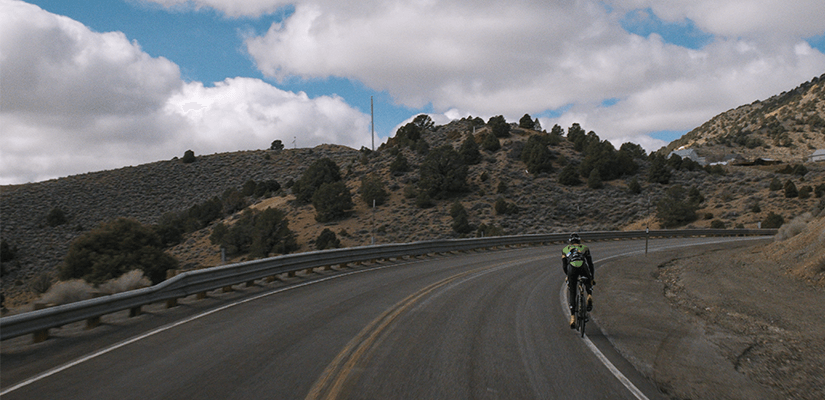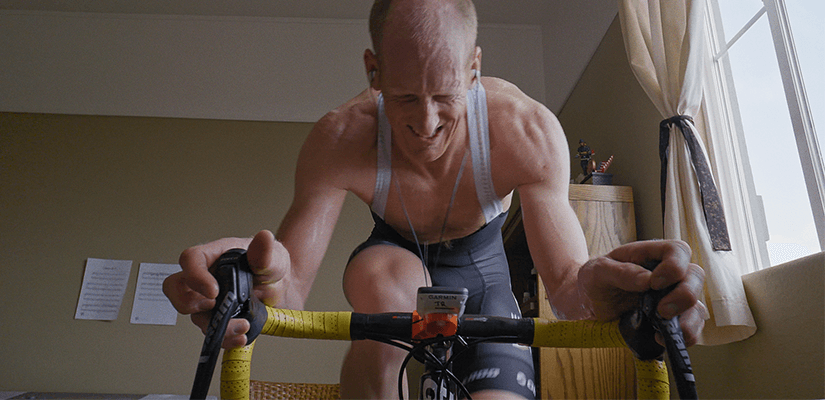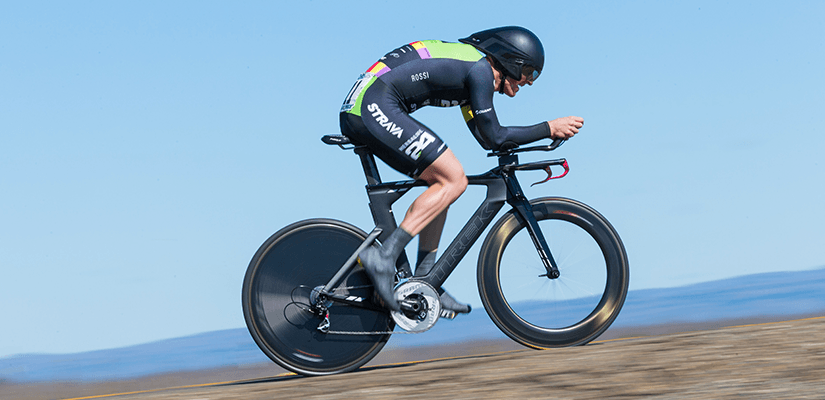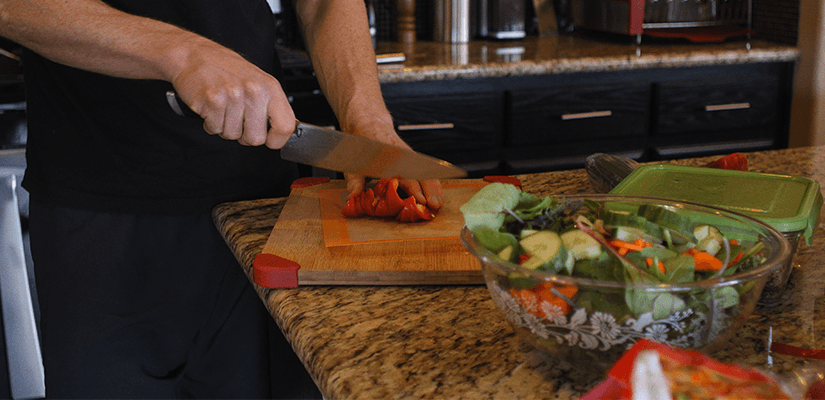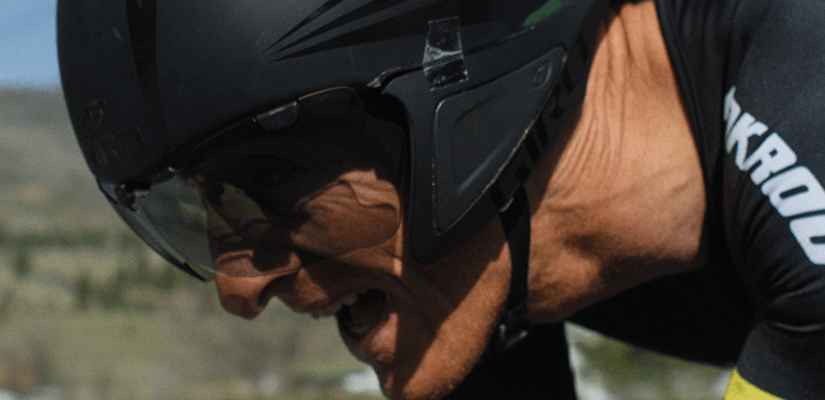What It Takes to Be the Best — An Inside Look
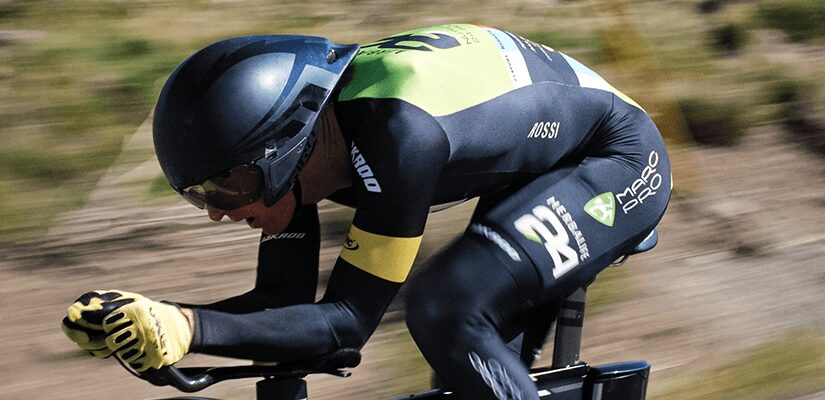
“Why do I put myself through all this pain?” For Justin Rossi, the amateur time trialist who lost first place by a mere nine seconds at the 2014 National Time Trial Championships, it would be a fair question to ask. But he doesn’t.
Rossi doesn’t have time to dwell on pain or the past. Nor does he have time for excuses. What he does have time for is training, seriously hard training. The kind of training average hobbyist cyclists praise, but often don’t pursue themselves. A full-time job, family responsibilities and obligatory celebrations are common reasons to blame for many who train in their free time. That’s where Rossi is different.
“Everybody has an excuse. Most of this world has to be employed for a living. You’re not going to make it as a bike racer unless you’re the best and you can make some huge sacrifices.”
For the 35-year-old full-time firefighter and member of the Herbalife p/b Marc Pro—Nature’s Bakery elite cycling team, every aspect of his life, from what he puts in his mouth to the extracurricular activities he chooses, is thought about in terms of potential gains. Each potential gain represents a sacrifice. That’s the story we wanted to tell. The day-to-day sacrifices, big and small, that give Justin Rossi his edge.
After a little more than a year of filming parts of Rossi’s inspiring cycling career, we’re excited to share The Chase, a story about his attempt at winning his most important race in 2015.
We had a handful of opportunities to sit down with Rossi while creating The Chase. In the time we spent interviewing him, we gathered a few quotes. Each one packs a punch — especially for those intimate with demanding training.
Time
“It takes a certain kind of person to understand the time is worth it. It’s worth achieving those goals. It’s worth the feeling that you get when you’re successful or you break through a barrier physically.”
As much as training may feel like a solo venture to amateur cyclists, it’s not for most. Those closest to these ultra dedicated, independent athletes feel the affects of their time commitments, too. Rossi notes this as one of the toughest parts of competing. Forget the wear and tear on his previously injured body, or the exhausting feeling of waking up before the sun on a Monday morning after a weekend of racing. It’s the time away from his wife, Tasha, that Rossi grapples with most.
This awareness of what’s at stake and who’s being affected is a good thing. It has forced Rossi to reflect and ask the question, “Why do I do this?” What he’s learned is that his “why” is less about the glory of winning and more about a feeling.
In one of our interviews he passionately explained, “There’s a certain feeling you get when you’re four or five percent body fat, tough as nails and you can rip up a mountain side out of a saddle just going for it … you’re like, ‘gimme another gear. I got this.’” That’s the feeling he strives for. It’s also the same emotion that makes all the time he gives to training worthwhile.
Training
“I’ve been doing this long enough to know that the most important type of training is threshold training.”
Rossi is definitely a sweet spot, threshold type of guy. Between his full-time job, home life, yoga, weekly massages and monthly physical therapy sessions, 10-15 hours a week is all he’s able to dedicate to training on the bike. “I just don’t have time to ride 20-30 hours a week,” he said. “After I take my month, month and a half off, it’s right into sweet spot work. I go out and start with 30-minute intervals then build it to 1-hour, then 2-hour intervals.”
Even if Rossi had more time to train, he likely wouldn’t spend it on the bike.“I’ve found I don’t like just riding around for five hours. Spending long hours on the bike makes me tired and bored. I’d rather get on the bike and start training threshold as soon as possible.”
Beyond the type of training Rossi subscribes to, what he mostly credits his success to is his consistency. “I think that’s where I win,” he told us. He then added, “Some people will say, ‘I had a terrible week of training.’” If there’s one remark that doesn’t resonate with Rossi, it’s that. “A week!? You let it go a week? A week if you’re sick or injured I get — let’s build it in as a rest week — but you can’t have weeks of inconsistencies,” is often the response you’ll get from him. Rossi tries to keep his logic around training simple. Distractions will come into your life and try to take you away from your goals. Don’t let them.
Equipment
“Even if it’s not that much of a gain, it’s still a gain. I lost nationals by nine seconds — that’s a tire choice; that’s a helmet choice; that’s cables.”
One component of trying to be the fastest is finding gear that supports your mission. So, from Rossi’s time trial bike to his Jakroo flash speed skinsuit and everything in between, his equipment is dialed. That’s part of the role, after all.
If you’re in a position like Rossi, you chat with riders you know are fast, investigate what the pros are using, read online reviews of equipment and test what you can for yourself. Through this process you’ll dig up a lot of information. You may even get overwhelmed. If you do, take a step back and consider these words from Rossi, “Don’t freak out about it [equipment] or let it consume you.”
As much as Rossi knows the importance of good equipment — and how in very rare cases it can mean the difference between losing by a few seconds or not — he doesn’t let it distract him from the really important stuff. The important stuff can’t be purchased, it can only be earned through hard work, discipline and practice. “The bike is only so fast,” Rossi acknowledges; “It really comes down to the rider and your position. You could be on a much slower bike, but if your position is good then it’s going to make more room than anything.”
Nutrition
“People love to say, ‘Oh you ride your bike five hours you can eat whatever you want.’ No I can’t. I can’t be five percent body fat and eat whatever I want.”
Rossi isn’t interested in gels, he likes food. A lot of food. But only the best kinds. When he’s training or in competition, he eats Nature’s Bakery fig bars every hour he’s in the saddle. When he’s off the bike, he’s doing one of two things: preparing a post-ride recovery shake (2 scoops of Rebuild Strength from Herbalife, almond milk, coffee and frozen fruit) or cooking up a hefty organic meal consisting of a cup of rice, a couple salmon burgers, two eggs and maybe veggie stir fry on the side.
If that sounds like a lot to eat, Rossi knows. As justification he mentions, “I have a huge appetite. My whole family, my dad, my grandpa … we’re all big eaters. I think my body wants to be about 190 or 200 pounds, but my goal race weight is 170.”
Even though he’s serious about eating the right types of foods at the right times, Rossi still has to combat the effects his big appetite can have on him. That’s when training hard comes into play. It’s like a reward system for Rossi. If he decides to cheat on his diet (which is infrequent), he does so knowing he’s earned it.
Goals
“Every year I have something new I want to bring into my program. It’s extra work, but if you have big goals you want to achieve you have to think about all those little things.”
Rossi’s wife likes to say he’s a special kind of breed. Most people don’t have the high tolerance for pain that he does. There’s no doubt this quality has worked to his advantage throughout his cycling career. It’s arguably the very thing that’s allowed him to set such high goals for himself. Take one of his last year’s goals, for instance. Rossi wanted to do 500 watts for five minutes. He did it. Remembering the moment he said, “That felt just as good as winning a race.”
Accomplishing a goal like that doesn’t just happen because you’re physically fit. Just like becoming a nationally ranked time trialist doesn’t just happen either. These achievements are the result of many things, but mostly a well-developed mental toughness.
Cycling is a hugely mental sport. Without a strong mindset and goals, most amateur athletes aren’t willing to make the additional sacrifices it takes to be the best. Unless you’re a freak of nature, which Rossi admits he isn’t, you have to do all the right things. And then maybe, just maybe, you’ll win.
Are you ready to train like a nationally ranked time trialist? Try TrainerRoad for one month risk free.
